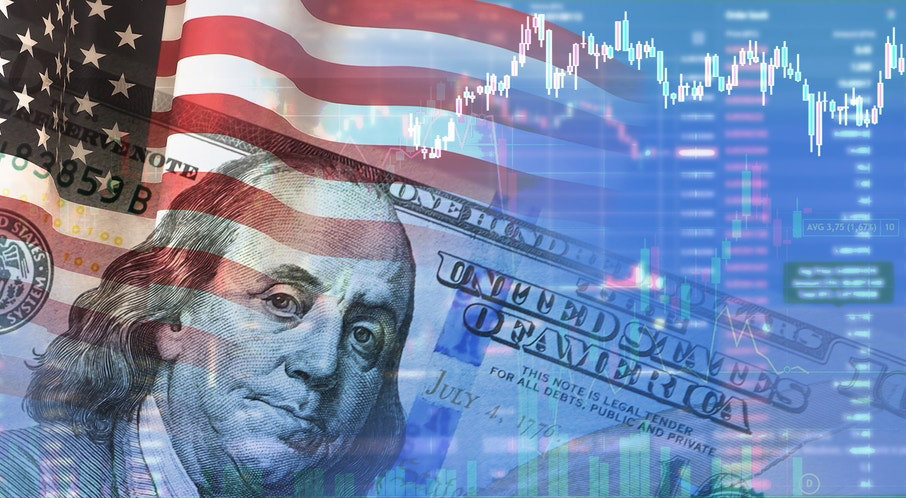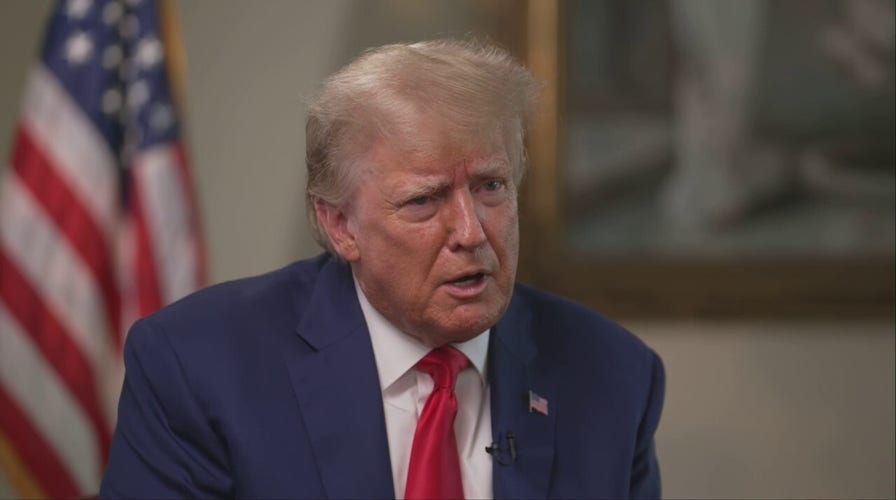Trump's Trade Policies: A Threat To US Financial Leadership

Table of Contents
Erosion of International Trust and Cooperation
Trump's trade policies systematically damaged the US's relationships with key trading partners, undermining the very foundations of global economic cooperation. This erosion of trust had far-reaching consequences for US financial leadership.
Damaged Relationships with Key Trading Partners
The administration's imposition of tariffs on goods from China, the European Union, and numerous other countries ignited a series of trade wars, characterized by retaliatory measures and escalating tensions.
- China: The trade war with China, marked by billions of dollars in tariffs imposed on each side, severely disrupted global supply chains, increased costs for businesses, and fueled uncertainty in global markets.
- European Union: Tariffs on steel and aluminum imports from the EU led to retaliatory tariffs on American goods, harming US exporters and further straining transatlantic relations.
- Other Nations: Similar disputes arose with Canada, Mexico, and Japan, highlighting a broad pattern of strained relationships with key trading partners. These disputes impacted bilateral trade agreements, increasing friction and uncertainty in global trade.
These protectionist actions, driven by a "America First" approach, significantly damaged the US's reputation as a reliable and predictable trading partner.
Undermining Multilateral Trade Organizations
Trump's administration actively undermined multilateral trade organizations, weakening the global governance structures vital for maintaining a stable and predictable international trading system.
- World Trade Organization (WTO): The US repeatedly blocked appointments to the WTO's appellate body, effectively paralyzing its dispute settlement mechanism, a cornerstone of the global trade rules system.
- Other Agreements: The withdrawal from the Trans-Pacific Partnership (TPP) further signaled a retreat from multilateralism and a preference for bilateral trade agreements, often negotiated under less transparent and less predictable conditions.
These actions weakened the influence of the US within the WTO and other international trade organizations, reducing its ability to shape global trade rules in its favor and further damaging its standing in the global economic community.
Negative Impact on US Economic Growth and Stability
Trump's trade policies, despite their protectionist aims, ultimately inflicted significant damage on the US economy, undermining its long-term growth and stability.
Increased Costs for Consumers and Businesses
Tariffs imposed by the Trump administration increased costs for consumers and businesses, reducing US economic competitiveness.
- Inflation: Tariffs led to increased prices for imported goods, contributing to inflation and reducing consumer purchasing power.
- Reduced Exports: Retaliatory tariffs imposed by other countries hurt US exporters, leading to job losses and decreased economic output. The trade deficit also grew significantly during this period.
- Supply Chain Disruptions: The trade wars caused significant disruptions to global supply chains, increasing production costs for American businesses and further hindering economic growth.
These economic consequences directly undermined US economic competitiveness on the global stage.
Uncertainty and Instability in Global Markets
The unpredictable nature of Trump's trade policies created significant uncertainty for investors and businesses, negatively impacting investment and economic growth.
- Market Volatility: Frequent shifts in trade policy triggered volatility in global financial markets, making it more difficult for businesses to plan for the future and discouraging investment.
- Reduced Investment: Uncertainty surrounding trade relations reduced foreign direct investment in the US, hindering economic expansion and job creation.
- Economic Instability: The combination of increased costs, reduced exports, and investment uncertainty contributed to greater economic instability within the US and globally.
Rise of Alternative Global Financial Systems
Trump's trade policies inadvertently accelerated the development of alternative global financial systems and trade alliances, challenging the dominance of the US dollar and US financial leadership.
Increased Influence of Rival Currencies and Trade Blocs
The pursuit of protectionist policies pushed other countries to seek alternatives to the US-centric global financial system.
- RMB/Yuan: China's growing economic influence, coupled with its Belt and Road Initiative, has strengthened the international role of the RMB, offering a potential alternative to the US dollar in international trade and finance. The rise of digital currencies also presents a challenge to US dollar hegemony.
- Regional Trade Agreements: The erosion of multilateral agreements under Trump's administration fostered the growth of regional trade blocs, like the Comprehensive and Progressive Agreement for Trans-Pacific Partnership (CPTPP), reducing the US's influence on global trade rules.
Weakening of the US Dollar's Hegemony
The uncertainty created by Trump's trade policies, combined with the rise of rival currencies and trade blocs, has raised concerns about the long-term viability of the US dollar's status as the world's reserve currency.
- Reduced Confidence: Protectionist policies and strained international relationships have reduced international confidence in the US dollar, potentially leading to currency devaluation.
- Shifting Global Reserves: Some countries may diversify their foreign exchange reserves away from the US dollar, seeking to reduce their dependence on the American financial system.
A decline in the US dollar's hegemony would severely weaken US financial leadership and its ability to shape global economic outcomes.
Conclusion: Assessing the Threat to US Financial Leadership
Trump's trade policies significantly weakened the US's global economic standing and threatened its financial leadership. The erosion of international trust, the negative impact on US economic growth, and the rise of alternative global financial systems all contributed to this decline. Key takeaways include the severe damage inflicted upon US relationships with key trading partners, the detrimental effects on the US economy through increased costs and uncertainty, and the acceleration of alternative financial systems. Understanding the long-term implications of Trump's trade policies on US financial leadership is crucial. Continue your research on the impact of protectionist policies and the future of global trade to understand the ongoing challenges to US financial leadership and the ongoing ramifications for global financial stability.

Featured Posts
-
 Kyiv Faces Trumps Ukraine Peace Plan A Ticking Clock
Apr 22, 2025
Kyiv Faces Trumps Ukraine Peace Plan A Ticking Clock
Apr 22, 2025 -
 Fox News Faces Defamation Lawsuit From Ray Epps Over January 6th Reporting
Apr 22, 2025
Fox News Faces Defamation Lawsuit From Ray Epps Over January 6th Reporting
Apr 22, 2025 -
 Evaluating The Feasibility Of A Combined Swedish Finnish Defense
Apr 22, 2025
Evaluating The Feasibility Of A Combined Swedish Finnish Defense
Apr 22, 2025 -
 Hollywood Strike Actors Join Writers Bringing Industry To A Standstill
Apr 22, 2025
Hollywood Strike Actors Join Writers Bringing Industry To A Standstill
Apr 22, 2025 -
 127 Years Of Brewing History Ends Anchor Brewing Company To Close
Apr 22, 2025
127 Years Of Brewing History Ends Anchor Brewing Company To Close
Apr 22, 2025
